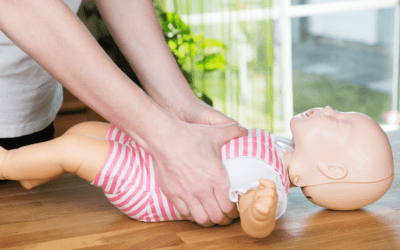For many travel health practitioners, trying to structure their consultations within a relative short timeframe can be a challenging and daunting task, especially if their traveller presents with a complicated medical history or are within a high-risk criterion. But what can we do to ensure that our travel health consultations run smoothly and in a consistent way? How can we as travel health practitioners become confident in talking about different travel subjects, which can instil joy and confidence in our travellers? And what are the subject areas we need to know in order to prioritise the information we need to get across to our traveller so they have a safe trip? Let’s get into it!
What is involved in a Travel Health Consultation?

The travel consultation is the most important part of getting the right information across to our travellers. As travel health professionals, we know there are many important aspects, which make up a successful travel consultation to ensure our travellers receive the best, most up to date information on their travel itinerary. During the travel consultation, the travel health clinician will conduct a risk assessment with the individual, discuss the potential health hazards and how to manage potential risks.
The travel consultation may also include a number of other areas such as:
- Administering vaccinations
- Discussing malaria prophylaxis
- Explaining the potential side effects of the yellow fever vaccine, YEL-AVD (yellow fever vaccine associated viscerotropic disease) and YEL-AND (yellow fever vaccine associated neurotropic disease)
- Weighing up the risk of the individual and deciding if it is safe to give a vaccine
- Ensuring there are no interactions between the individual’s medications and any other prescribed tablets they may need to take during their travels i.e. azithromycin, acetazolamide etc
- Making sure the traveller knows how to take medications correctly and the correct dosage
- Completing patient documentation
What Makes an Effective Travel Health Consultation?

As we can see above, travel health consultations can be a daunting thought for travel health practitioners and nerves can often build within us, especially if our traveller is a child, if they are travelling with a potential risk of FGM (Female Genital Mutilation), if English is not the their first language, or if they have complex medical needs such as being immunocompromised. This can especially give rise to anxiety in new healthcare professionals who are only just starting out in the travel health field. But in order to reduce our anxiety and conduct a successful travel health consultation, it all boils down to one of the most important factors: Effective time management!
But how can travel health clinicians prioritise their time management? And how can prioritising effective time management help with a successful travel consultation? Let’s look into what is involved in conducting a travel consultation and how we can implement time management to ensure they run smoothly.
How Are Travel Health Consultations Conducted?

There are many ways in which travel health consultations can be conducted with the most prominent form being face to face. The travel health practitioner can see patients/clients either one to one, in a group or in a family. Travel health consultations can also be conducted online, in a video call or over the phone, where the healthcare practitioner can educate the traveller and advise them on what they may need for their trip before booking an appointment to visit the clinic for the required vaccines or prophylaxis.
What Training Do You Need to Conduct Successful Travel Health Consultations?

The CQC (Care Quality Commission) have published advice on how travel health practitioners can provide safe and effective consultations in England, both in the NHS and in the independent sectors. They, provide resources, discussing what is acceptable in general practice and the duty of care towards travellers through governance and practice training.
The ‘Good Practice Guidance for Providing a Travel Health Service’, was published in October 2020 by The Faculty of Travel Medicine of the Royal College of Physicians and Surgeons of Glasgow (RCPSG). In this guidance document they state that the responsibility of each workplace or organisation is to ensure that practitioners who are new to travel health medicine should have access to supervised practice.
Health care practitioners need to be signed off on learning outcomes to ensure they are competent in performing travel health consultations. They should follow guidance issued by the Royal College of Nursing (RCN) Travel Health Nursing: career and competence development and the RCPSG using a competency framework that the health care practitioner needs to follow with evidence of immunisation training and evidence of competence and safeguarding at the appropriate levels. Yellow fever training is essential and travel health practitioners must meet the standards required under the administration of the National Travel Health Network and Centre (NaTHNaC) to be fully confident in seeing travellers who may require the yellow fever vaccine.
Each practitioner needs to have a good and up to date knowledge of travel health medicine with evidence of clinical practice and of competence, like attending a two-day introduction to travel health course.
As an experienced travel health practitioner, it is also important to keep up to date with your travel health knowledge. There may be areas of travel health that you may not feel confident about such as vaccine doses or it might be a refresher to brush the cobwebs away and learn new aspects of the travel health field you didn’t know about. The RCPSG Good Practice Guidance recommends attending travel medicine related conferences and training update sessions to ensure professionals keep up to date for all aspects of their scope of practice.
What Tools Can Be Used During Travel Health Consultations?

The NaTHNaC and the Travel and International Health Team (TIHT) are the two key bodies that provide guidance for both clinicians and to the public on travel health related subjects in the UK. NaTHNaC is commissioned by the UK Health Security Agency (UKHSA) and the TIHT is commissioned by Public Health Scotland (PHS). The guidelines for malaria prevention in travellers from the UK are produced by the UKHSA Advisory Committee on Malaria Prevention (ACMP).
Healthcare professionals working in England, Wales or Northern Ireland are advised to use the ACMP guidelines as their preferred source of guidance for malaria prevention which are also available on the NaTHNaC website. Separate guidance is produced in Scotland for Scottish health professionals by the Scottish Malaria Advisory group and is available on the websites TRAVAX and Fit for Travel.
Both tools will help you to look at the country the traveller is visiting and identify the risks associated with their trip. Risks can include mosquito borne diseases like zika virus or dengue or any current outbreaks like cholera or measles disease.

The RCPSG Good Practice Guidance also includes links to key guidance documents and resources for travel health practitioners (page 38-50.
Patient Group Directions (PGDs), enable healthcare professionals to supply and administer specific vaccinations to pre-defined groups of patients without a prescription. PGD’s are an important resource to refer too when explaining to the traveller vaccine doses, potential side effects and risks. By showing documented evidence in the PGD, it makes the traveller aware that the information the travel health practitioner is providing is safe and accurate and this can help to instil confidence that they can trust what information is being given to them.
The UK Health Security Agency (UKHSA) Green Book guidance and the vaccination Summary of Product Characteristics (SMPC) on the Electronic Medicines Compendium (EMC) are also useful valuable resources to refer during consultations for more specific information. The British National Formulary (BNF) (National Institute for Health and Care Excellence NICE) can also be used to check for medication interactions and further information.
How Can We Prioritise Our Travel Consultations? Our top tips:

1. Preparation is key!
One important factor of managing our time during travel consultations is preparing ourselves before seeing the traveller – use the recognised tools as stated earlier to find out where the traveller is going and what their itinerary will entail. A health questionnaire is essential for the individual to complete so we can see if they have any medical conditions, allergies, if they are taking any medications or if they have received any travel vaccinations in the past.
Travel health practitioners should enquire about specific details regarding the traveller’s trip such as what destinations or areas they will be visiting. The traveller may be venturing into a yellow fever risk zone or a high risk malaria area. What accommodation will they be staying at? Hotels, hostels, Air B&B’s etc. Have they booked any excursions during their trip? If they have, what will they be doing? Scuba diving, mountain climbing, sight seeing etc. What are they actually travelling for? Is it a holiday, for work related purposes, volunteering etc?. Asking specific questions will allow the travel health practitioner to break down the trip, to decide what information is more important to discuss first and to help with keeping an eye on their time management.
2. Signpost to others
Some travellers may visit their GP practice first to obtain vaccinations they can get for free on the NHS – These vaccines are Typhoid, Hepatitis A, Tetanus, Diphtheria and Polio (TDP) and Cholera. However, this may not be possible for all, especially those travelling at short notice. Some travellers may visit a private setting first, and be informed of which they can get on the NHS and which are available privately. It is important that regardless of the setting you work, whether it is primary care or private, that you understand about all of the vaccines that are available to the traveller, even those that you don’t give in your setting, to ensure you can identify those at risk and sign post where needed. If a traveller has already received vaccinations elsewhere, it is good practice to add the dates of administration onto your computer system. This will allow you to refer back to the dates if the traveller returns to the clinic for further appointments.
3. Defer some discussions to later where possible
If time is limited and the traveller needs to return to clinic for further appointments, consider deferring other conversations to the next visit – this helps not only yourself from becoming overwhelmed but it will help the individual retain information better by splitting information up into different appointment times.
4. Give information to take away and research
Hand out information sheets for the traveller to take home or send information via email. This is a great way for individuals to self-educate themselves by reading up on the relevant resources. They may forget information being spoken about in the consult so it is a great way for them to read about it in their spare time. Travellers can also be made aware of using the Travel Health Pro, NHS Fit for Travel websites for free online and they can use the International Society of Travel Medicine (ISTM) website to research accessing travel clinics abroad, in case they cannot complete a vaccination course in clinic or if they change their minds about having a particular vaccine, while travelling.
5. Ensure informed choice
Let the traveller take responsibility for their trip by researching the topics you have mentioned, allow them to make informed choices for themselves rather than telling them what vaccine you think they should have. The traveller should always be able to make an informed choice. It is important for travel health practitioners to highlight this point as it is placing the responsibility back in their hands. A lot of individuals may want the practitioner to make the choice for them but that is not our decision to make and this should be reiterated.
6. Keep them engaged!
Try and engage the traveller in the consultation – if all you do is talk throughout the consult then you will eventually become exhausted and people may start to daydream. A good question to engage the traveller would be ‘Do you know what to do if you are bitten, scratched or licked on an open wound by a warm-blooded animal?’ Get the traveller thinking about certain scenarios, which could happen on their trip. Engaging them in the conversation makes it more enjoyable for them and they will be better able to retain the information being given.
How can Appointment Times Help Manage Consultations Time Effectively?

The RCN’s clinical professional resource ‘Travel Health Nursing: Career and Competence Development’, states that travellers with more complex health needs such as pregnancy, immunocompromised individuals, patients/clients requiring malaria prevention advice or Yellow Fever Risk Assessments will need an extended time of 30 minutes or longer to allow for all the relevant information to be given.
Discussing yellow fever is one aspect of the consult which may take longer than 30 minutes, especially if Yellow Fever Vaccination Clinic’s (YFVC’s) who see travellers that are not already registered with their practice or if their medical records are not known or available.
Travel health practitioners should learn how to keep track of the information they are discussing during the travel consultation. Some individuals can be very talkative, or both can get carried away and go off the topic being discussed. It is important for practitioners to politely bring them back to the topic of conversation to keep the consultation on track. The travel health practitioner can even ask closed questions where a ‘yes’ or ‘no’ answer is required in certain circumstances, so that the consultation moves forward at a steady but reasonable pace.
It can help to complete the relevant documentation as the consultation progresses. If you leave all your documentation until the end of the consult, you may forget all the details of what has been discussed and it may make you run over time. It can help to highlight to your traveller that you are listening whilst writing and they have your full attention, to reassure them. Making eye contact when asking questions before writing down their answers, can also help with building trust and rapport.
In summary
By implementing the relevant points into your travel consultations, you can be sure to improve your time keeping in your own way. Practice makes perfect and the more consultations you conduct, the more you will get into your own rhythm, gaining the confidence over time to co-ordinate how your consultation will go. For travel health practitioners new to the travel field, you will find you own way of talking about different travel topics, you will gradually understand more about the different vaccines, the potential side effects and their schedules.
It is important to note that we are continuously learning throughout our travel nursing career and it is only by setting small goals each time, that we will continue to improve. Sometimes it isn’t until you are faced with a particular situation, or are asked a question that you develop that knowledge. So please don’t beat yourself up. We are all in this together!
Our Courses at Health Academy

Health Academy provide travel health courses for practitioners new to travel health who need further knowledge and expert advice. Our ‘Introduction to Travel Health’ is a 2-day course led by our experienced trainers. Head to Virtual Travel Health Training 2 day Introduction to Travel Health course page to find out how you can book with us.
If you are thinking you may need an update on your travel health knowledge, you can book on to our virtual 1 day Travel Health Update course. Head over to our Travel Health Update course page to find out more about what the course entails and how we can help you become more confident in your consultations.
For those wanting to know more about Rabies – don’t miss out on our FREE lunchtime learning session happening soon- Not So Cute and Fluffy Now? Understanding and Talking About Rabies With Travellers – sign up now!
CPD Reflective Practice




